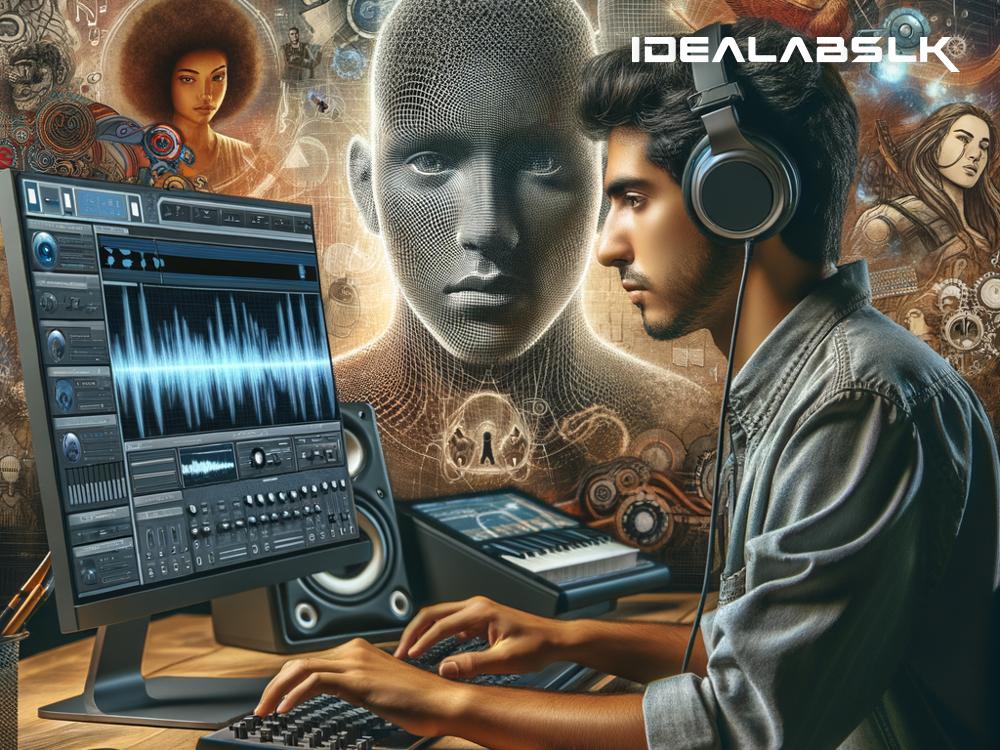AI and Game Sound Design: How AI Will Revolutionize Sound Effects and Background Music in 2024
In the vast and colorful world of video games, sound plays a hero’s role, often unsung. It's what makes you jump out of your seat when something goes bump in the virtual night or what gives you the soothing backdrop as you explore an alien planet. And while we’ve seen mind-blowing advancements in graphics and gameplay over the years, 2024 is all set to be the year where the spotlight turns to sound, thanks to AI.
So, What’s the Big Deal with AI in Sound Design?
Imagine having a personal composer and sound designer who can create any music or sound effect you need, on demand, without needing coffee breaks or sleep. That's kind of what AI promises for game sound design. AI, or artificial intelligence, is this smart tech that learns and improves over time. It's like teaching a parrot to sing, and eventually, it's composing its own symphonies.
Creating on Cue: The Magic of AI
In 2024, AI will empower game developers to generate unique, high-quality sound effects and music tracks more efficiently. This means rather than digging through vast libraries of pre-recorded sounds, hoping to find the perfect fit, developers can use AI to create custom sounds that perfectly match the mood, setting, or action in the game. Need the sound of a rainforest with a hint of mystery for your adventure game? AI’s got your back. This reduces time and costs dramatically and opens the door to never-before-heard sounds.
More Than Just Background Noise: Adaptive and Interactive Soundscapes
One of AI’s most magical tricks is creating adaptive soundscapes. Imagine playing a game where the music subtly changes based on your actions or emotions. If your character is sneaking around, the music might become slower, quieter, creating tension. This isn’t just looped background tracks anymore; this is a dynamic soundscape that interacts with the player, making the gaming experience more immersive and engaging.
The Power of Personalization
AI in sound design also means personalized audio experiences. Based on your gameplay style or the choices you make in a game, the AI can craft sound effects and music that reflect your journey. This level of personalization can make each player's experience unique, adding layers of depth to the storytelling and gameplay.
Breaking Language Barriers with AI
Another game-changer (pun intended) is AI’s role in breaking down language barriers. With AI, games can more easily include diverse languages, making it possible for sound effects that involve speech or narrations to switch languages based on the player’s preference. This inclusivity not only opens up games to a wider audience but also enhances the feeling of immersion in the game's world.
Towards an Accessible Gaming Experience
Accessibility is a crucial area where AI-driven sound design can make a significant impact. For players with visual impairments, enhanced sound cues and adaptive audio narratives can provide a richer understanding of the game environment, making gaming more inclusive and enjoyable for everyone.
Is There a Flipside?
As with any technology, it’s not all roses. There's a conversation to be had about preserving the artistry and human touch in sound design. The challenge will be in finding the balance between leveraging AI for efficiency and maintaining the creative essence that only humans bring to the table. Additionally, the issue of data privacy and the ethical use of AI are conversations that will continue to shape its development in sound design.
Looking Ahead
The future of sound design in gaming looks promising, with AI leading the charge. It’s about more than just making cool noises or catchy tunes; it’s about crafting an auditory experience that can adapt, personalize, and immerse players in worlds beyond their imagination. As we step into 2024, the fusion of AI and sound design in gaming is poised to revolutionize not just how we hear games, but how we feel and experience them. The symphony of the future is just beginning, and it’s a tune we’re all eager to hear.

